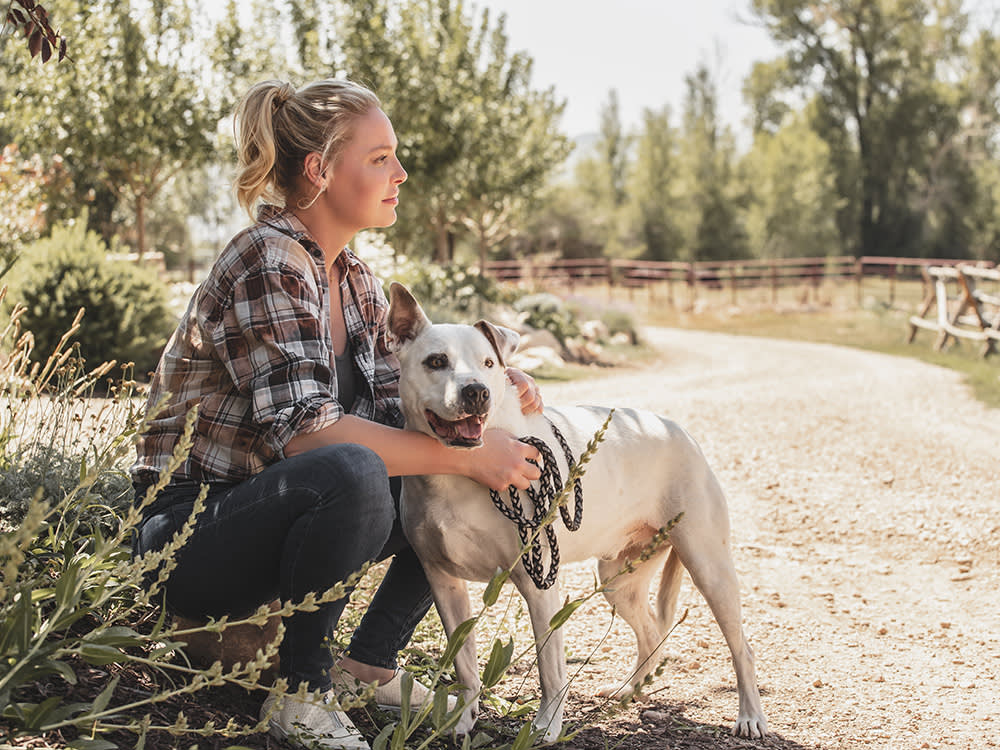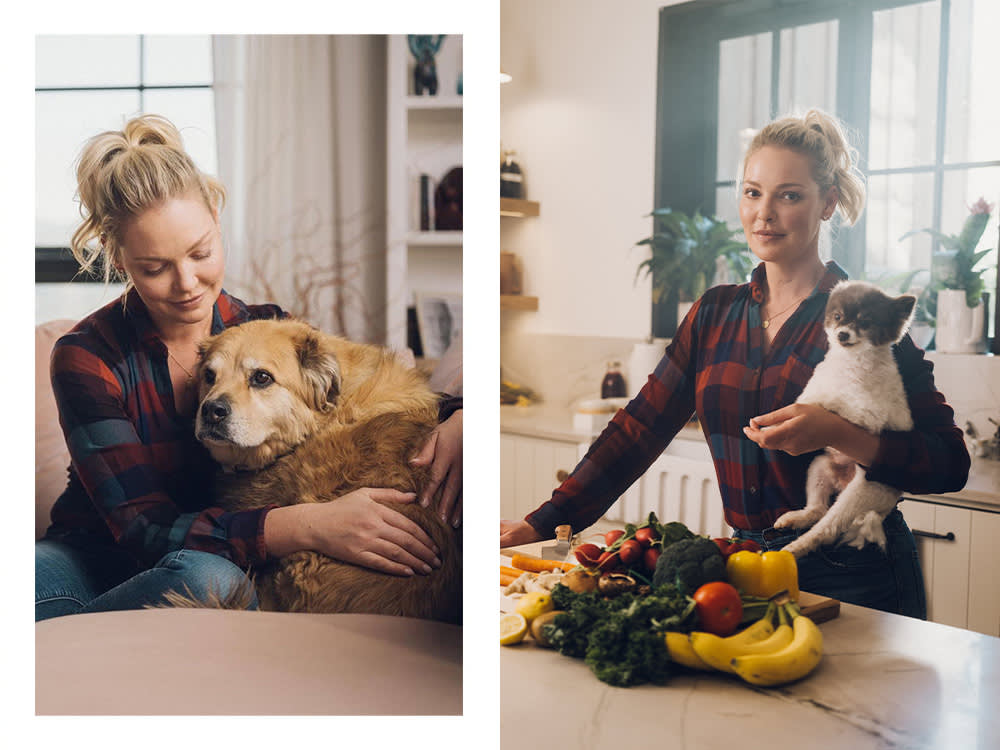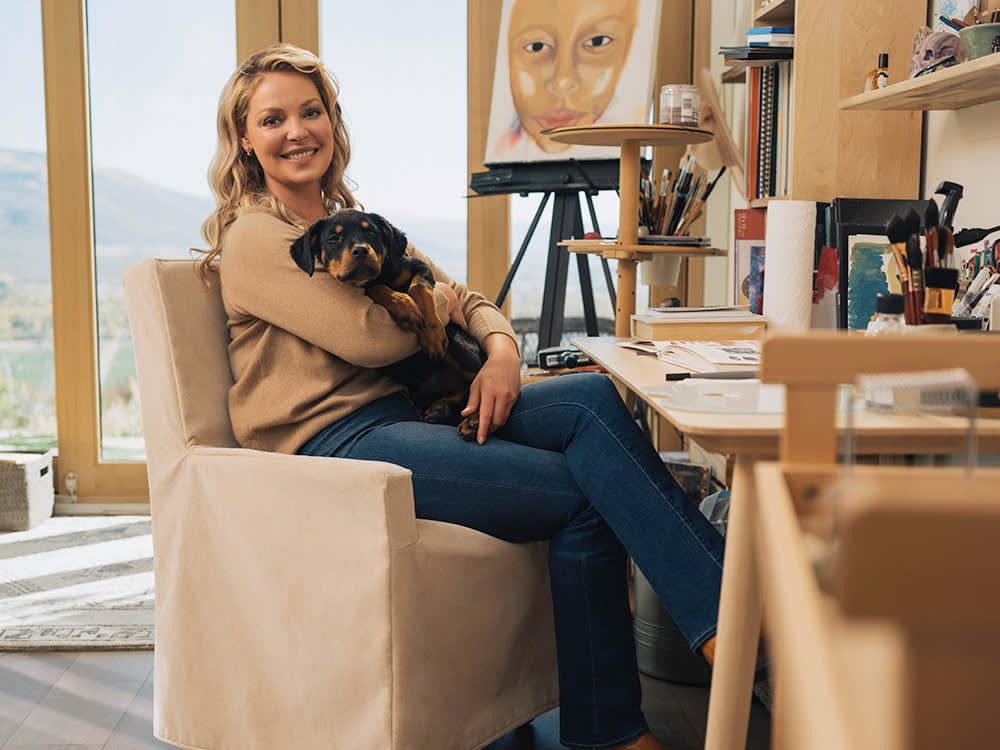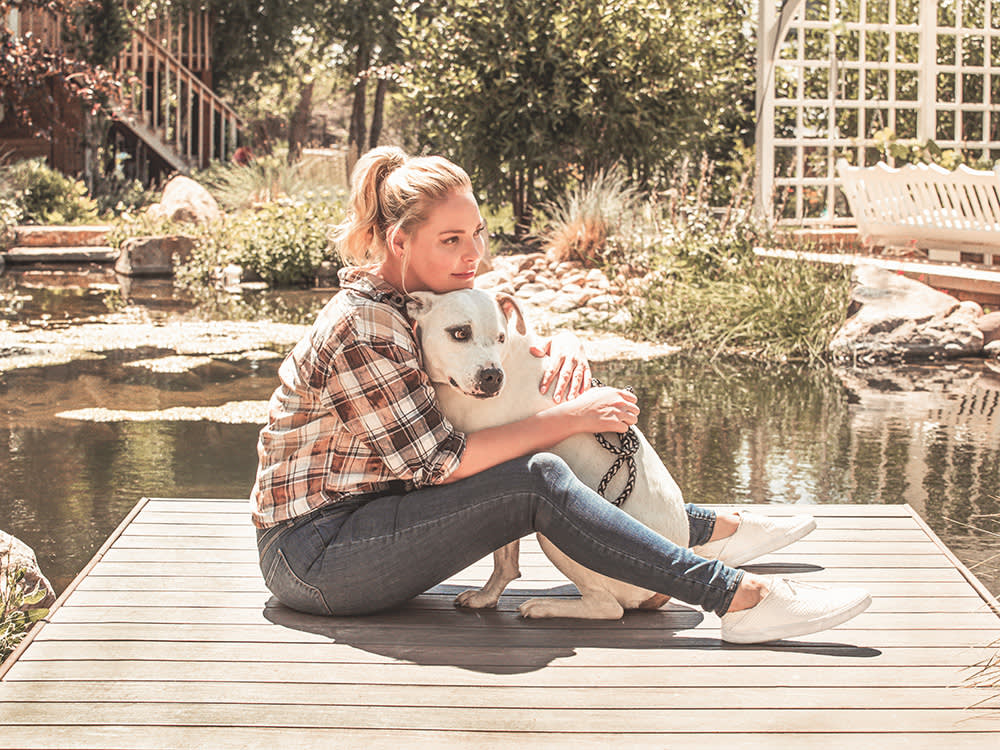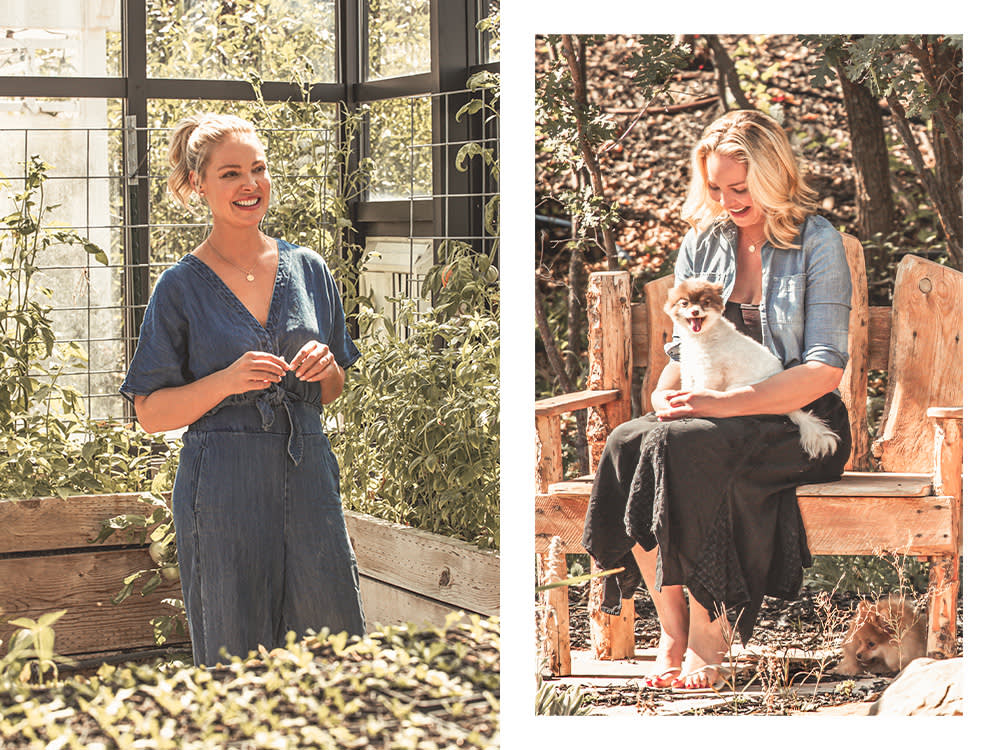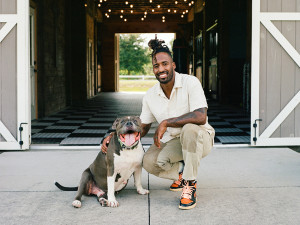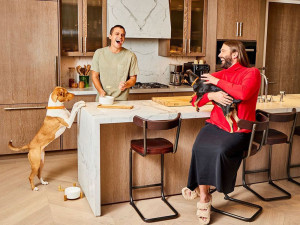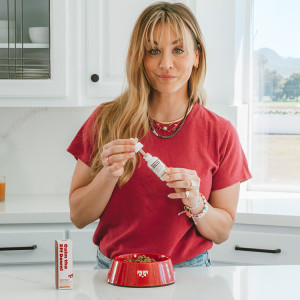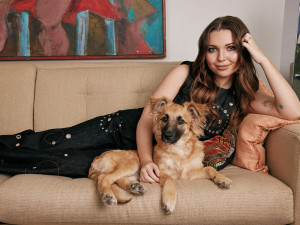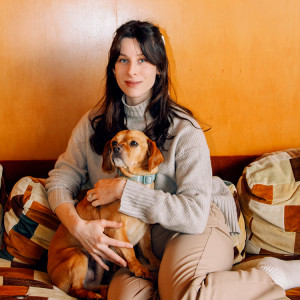How Katherine Heigl’s Rescue Pets Gave Her a Sense of Purpose and Connection
Now, the Emmy-winning actress and animal activist is giving it back through her rescue foundation and pet wellness brand, Badlands Ranch. “There is a benefit to our spirits, our minds, and even our physical nature — anyone who has ever loved an animal knows that.”
After years in the Hollywood spotlight, winning an Emmy award for her role in Grey’s Anatomy, and starring in such iconic films as Knocked Up and 27 Dresses, in 2010, Katherine Heigl decided to relocate her family to a farm in Utah, far from the buzz of Los Angeles. But with three children, a plethora of creatures to care for, an animal welfare foundation that she co-runs with her mother, and a new dog wellness brand, Badlands Ranchopens in new tab, Heigl’s life in the picturesque locale is anything but quiet.
“We have seven dogs, three cats, and two guinea pigs at home, and I have a ranch about five minutes from my house where we have horses and donkeys and pigs and goats and chickens,” Heigl tells Kinship. “So, yeah, we are pretty overwhelmed.” In addition to acting, Heigl — whose Netflix series Firefly Lane topped the platform’s charts earlier this year — has dedicated her life to the wellbeing of animals, co-founding the Jason Debus Heigl Foundationopens in new tab with her mother in honor of her late brother.
“We have always been pet people, but we did not know the degree to which our country has a problem with pet overpopulation,” she says. “We didn’t know how many animals were languishing in the shelters. So, we started the foundation to try to make a real concerted effort to diminish those numbers.”
Since its founding in 2008, the nonprofit has rescued hundreds of dogs who were at risk of being euthanized in high-kill shelters and helped to spay and neuter thousands of others through free programs that attempt to address the overpopulation problem at its root. The organization also has programs that assist shelters with medical and training costs to help make it easier for high-risk pets to find homes.
How much do you spend on your pet per year?
The work can be difficult, Heigl says; there is no way she can save them all. But the benefits she gets from caring for animals — whether those she rescues through her organization or her own pets — keep her going on the most challenging days.
“The reward I get from having companion animals in my home is immense,” she says. “There is a benefit to our spirits, our minds, and even our physical nature — anyone who has ever loved an animal knows that. They’ve soothed depression, anxiety, and overwhelm. They bring me joy on such a daily basis.” Kinship caught up with Heigl to chat about daily life on her Utah ranch, adopting dog friends for her dogs, and how she keeps pushing in the seemingly endless fight of rescuing animals.
This interview has been edited and condensed for clarity.
What is the day-to-day like when you’re caring for so many animals at home and at the ranch?
You get into a really good routine — you have to, otherwise it’s utter chaos. It’s a real cafeteria line for feeding when you put out everybody’s bowls. Everybody has to eat in different areas — you always want to be mindful and careful about that — you don’t want any fights over food. I have three little dogs and four big ones, so everybody has to be spread out across the house.
Then, you’re checking water bowls like 16,000 times a day, and there’s a lot of grooming involved. Everybody’s either getting baths or getting their nails clipped at one point or another. With three cats, you have to have four cat litter boxes. I read everyone needs to have their own plus one, so there are a lot of cat litter boxes to clean. It’s definitely a routine, but once you get it down, it really only is a couple of hours of your morning and evening. It’s not crazy — and then the rest of the time, it’s just fun.
I always hear that it gets hard to not keep getting more pets when you start rescuing. They’re all so perfect.
Those are my favorite memes — it’s like “I got one dog, so I had to get my dog a friend, and then I had to get my dog’s friend a friend.” So my dogs have friends and their friends have friends.
Can you tell us about the work the The Jason Debus Heigl Foundation does?
We do a lot of programs. The big one is that we do free spay-and-neuter programs across the country. You have to have faith because it’s really a long-term goal. We hope to see that as it unfolds less and less animals will end up in the shelter and less animals go abandoned or uncared for. We also do some transport programs for animals in high-kill shelters who have only 24 or 48 hours before they're going to be killed. We transport them to low or no-kill shelters across the country.
I think it’s the mark of a civilized society to care for those who cannot care for themselves. So that’s the reward for me — feeling like I’m putting another being’s needs above just my own. It makes me feel like I live a more purposeful life; I feel better about myself as a human being and a participant in this big experiment.
What is the most rewarding part of animal rescue for you?
It’s all pretty rewarding. I think every face of every dog we’ve saved is rewarding. The problem is all the faces of the ones we couldn’t help, so it’s sort of a double-edged sword. But it’s so worthwhile because I feel like they are voiceless. They can’t fight for themselves, they can’t speak for themselves, and they can’t protect themselves.
I think it’s the mark of a civilized society to care for those who cannot care for themselves. So that’s the reward for me — feeling like I’m putting another being’s needs above just my own. It makes me feel like I live a more purposeful life; I feel better about myself as a human being and a participant in this big experiment.
How did your rescue work with the foundation play into your desire to launch a pet wellness brand?
It was really kind of serendipitous. I had been on a journey with pet food, trying to find the right nutrition for my animals. I would hear of this trend or that trend, and I really tried everything. At one point I was making food myself in my Crock-Pot and thought, I am going to need to devote all of my time to this if I want to feed all my dogs.
So, when I was approached about partnering on something, I said, “Listen, if we’re going to do this, I really want to incorporate some of my passion for holistic health.” I had been studying herbology and really believe that it can be as beneficial to our pets as it is to us humans. We started talking to pet nutritionists and vets and figuring out what can benefit them. I’m really proud of the food that we’ve come [up] with. It’s so impactful to have not only good, clean nutrition but also health benefits.
Don’t get persnickety about exactly what kind of dog [breed] you want because this isn’t like buying a car: This is another living being. Their love for you has nothing to do with their looks. You can always get a cute dog from the shelter.
What would you say to someone who’s thinking about rescuing a dog but needs a nudge?
The most important thing to recognize is that, yes, it’s a responsibility, and it is now yours. But the responsibility in and of itself — the feeding them, the caring for them — is so small in comparison to what they give back. Having a pet gives you a sense of purpose and connection; it’s so worth it.
In terms of rescuing, I’m really against buying dogs because we have such an overpopulation of them in our shelters. Go rescue one. Don’t get persnickety about exactly what kind of dog [breed] you want because this isn’t like buying a car: This is another living being. Their love for you has nothing to do with their looks. You can always get a cute dog from the shelter. You can always get a little dog or a big dog or a medium dog or a dog that doesn’t shed. You can find all of that in the shelters.
There are even a lot of purebred dogs in the shelters, but our vets have been saying for years that the mutts and mixed breeds are actually healthier. At this point, the purebreds have been overbred, so you're going to be dealing with a lot more health issues and a lot more vet bills. Rescue is the way to go — and if you’re not certain, foster. Start there and see if it’s for you.
